
From its economic prowess to its technological advances, signs of China’s progress in recent decades are easy to find. But for foreign visitors, one of the most telling indications of the country’s advancement is the improving condition of its public toilets.
Kay Park, a South Korean who lived in Beijing for more than 10 years, said that when she first visited China as a tourist 15 years ago, its public toilets were “a disaster”.
“There were no doors at some toilets,” she recalled in an interview. “Or people wouldn’t close the doors.”
Things had improved noticeably during a recent trip back to China, she said.
“The quality of public toilets has gotten so much cleaner and people’s etiquette has gotten better too,” Park said.
Across the mainland, more than 70,000 public toilets have been constructed or repaired since 2015, when President Xi Jinping ordered a “toilet revolution”.
Xi’s aim was to improve a fundamental public service that was notorious for its filth, odour and ill-mannered users.
The revolution is continuing, with another 64,000 toilets expected to be built or rebuilt in the next three years under a plan unveiled in November by the Ministry of Culture and Tourism, the former National Administration of Tourism.
The man building a better today for China’s children – one toilet at a time
Noting that the issue affects “people’s life quality”, Xi late last year urged improvements to public toilets in cities and rural areas.
Even in a major metropolis such as Nanjing, local residents still have trouble finding a public toilet when they need one, according to a survey of more than 200 city residents a year ago.
More than 96 per cent of participants said it was hard to find a public restroom, according to a report on the survey that was published on the Nanjing government’s website last April.
Ninety-four per cent complained about finding no toilet paper or hand wash. It also was common to find restrooms with damaged doors, hangers and taps, the report said.
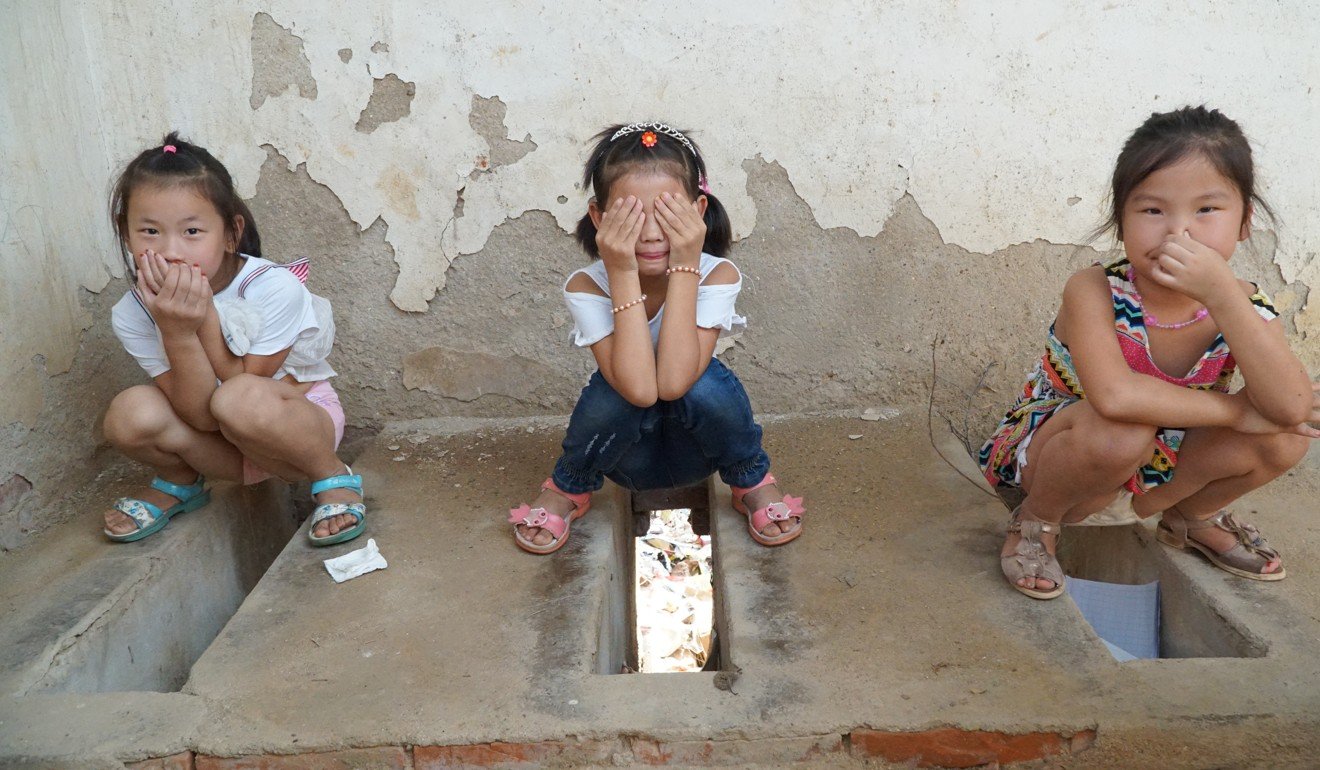
But talking both with users and people who work at public bathrooms suggests that cleanliness has become a greater priority.
Shen Weigan, who cleans the public toilet on Nanyang Road in central Shanghai, bragged in an interview that her restroom is “cleaner than kitchens”.
Wanted: Chinese city seeks university graduates for public toilet jobs
Shen, who also holds the job title of “manager”, said she and a colleague ensure the bathroom meets standards of cleanliness and ventilation while working alternating 5am to 10pm shifts.
The Nanyang Road facility – which was repaired and redecorated in September – is the cleanest restroom Shen said she has known since she started cleaning toilets in Shanghai in 2012.
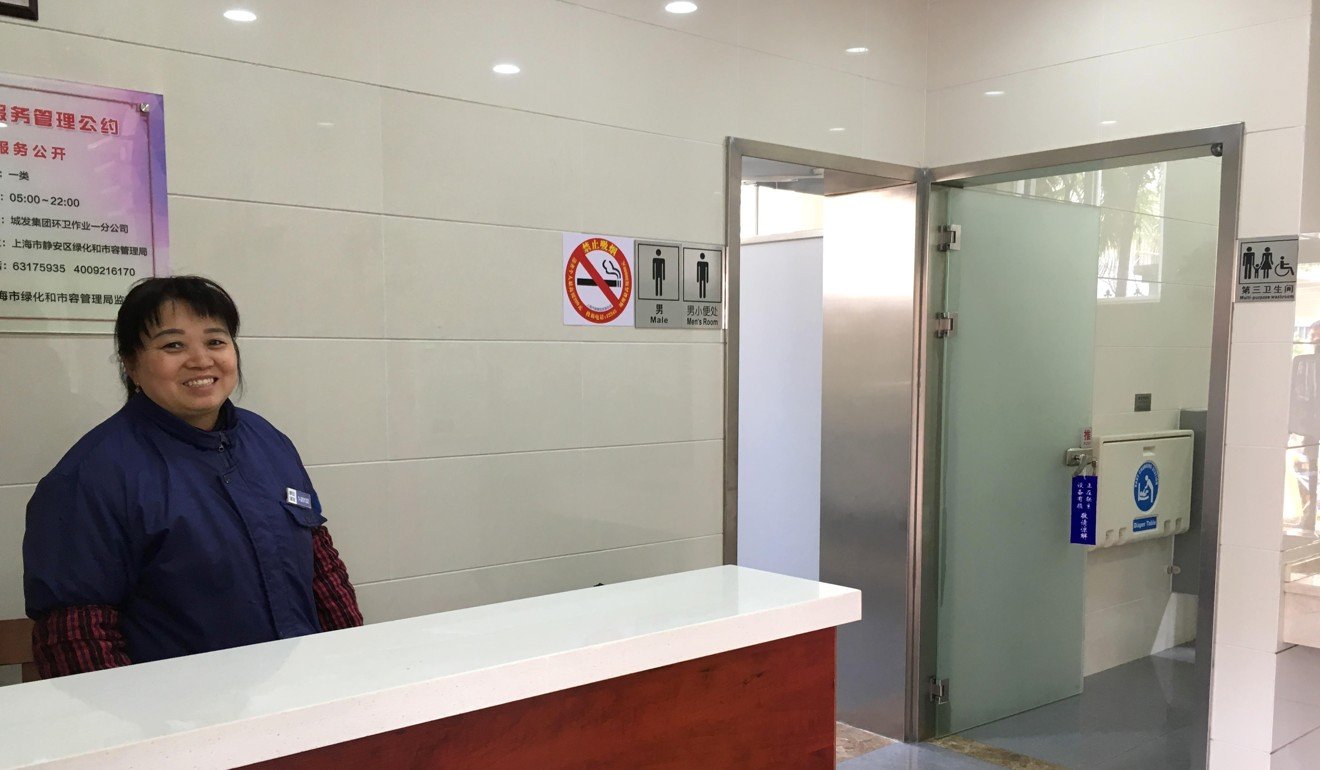
The facility also sets itself apart from most streetside public toilets in China by offering a toilet space in a separate room that can be used by children, the disabled, people who are travelling with babies, and senior citizens who might need help going to the bathroom.
Besides warm water, soap and a hand drier, users also can find sanitary towels, sterile water for washing wounds and a sewing kit.
“People from above come to check up on sanitary conditions here every day,” she said.
Chinese officials slammed for flushing US$31,000 from poverty reduction fund down the toilet
The noticeable improvement in people’s behaviour compared with six years ago when Shen first started doing this work reflects the positive reaction to the clean surroundings, she said.
“They come in and see everything is tidy, so they try to be careful not to leave a mess,” she said.
Scott Blankenship, an American businessman from Indiana, who has been to China 11 times since 2015, compared the difference in the standards of the toilets he had visited on the mainland.
“In my hotel, the toilet was very nice – clean and no smell,” he said. “It was a Western-style toilet, just like in the US.”
By contrast, using the employee restrooms at the factories he visited in the city of Jiaxing, Zhejiang province, was a far less pleasant experience, he said.
“I immediately noticed a very bad smell,” he said.
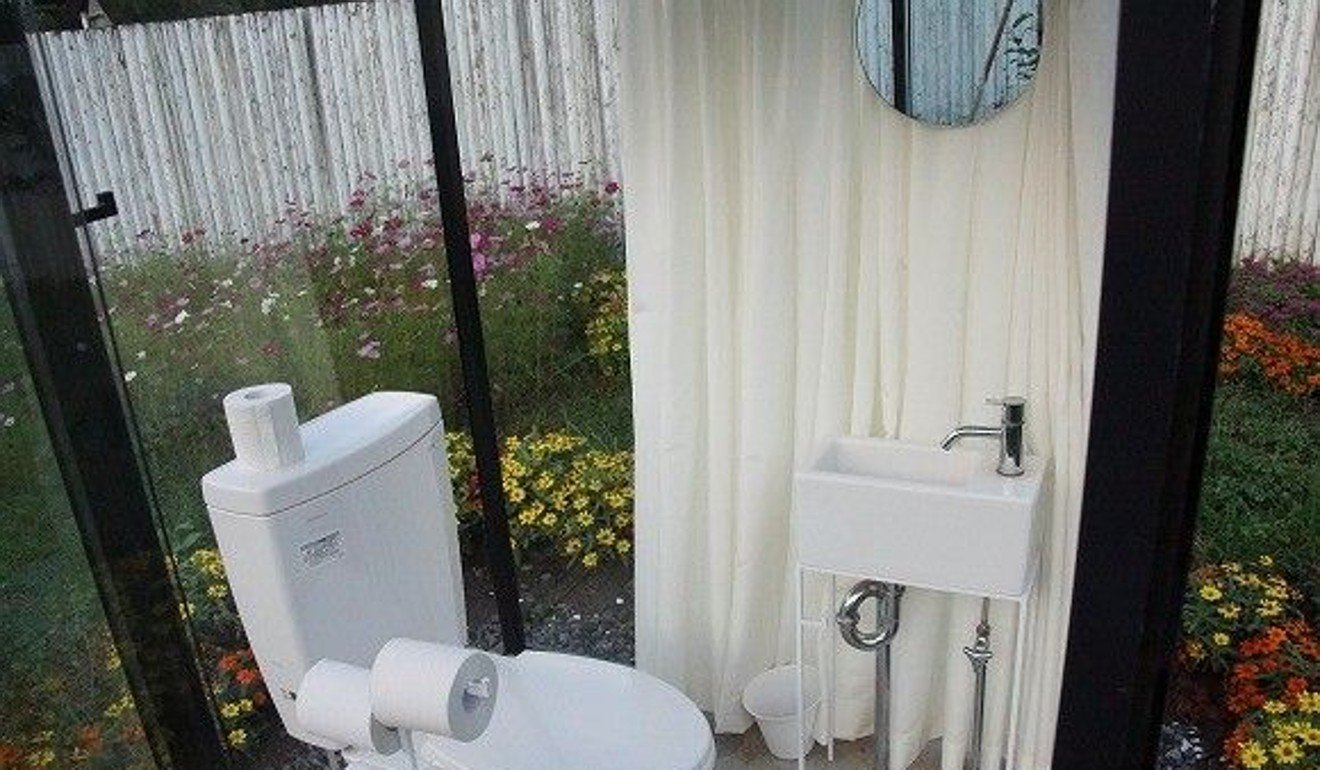
One of the worst toilets he had seen was “a trough along the wall” of a highway toll booth, he said. “Very dirty and smelly.”
In setting priorities, China needs to put controlling smells created by bathroom smokers at the top of the list, according to Blankenship.
Although most major Chinese cities have banned smoking in any public space with a roof, smoking in public toilets remains commonplace because of a lack of policing of rules and of meting out punishment to violators.
‘Toilet chiefs’ in, luxury loos out as China’s public bathroom revolution rolls on
“Clean restrooms are very important and comforting to expats,” Blankenship said.
“We do not want the smell to be overpowering. We do not want to smell like cigarettes when we are done.
“We want warm water, soap and clean towels to clean our hands.”
Bivash Mukherjee, an Indian who has lived in Shanghai for nearly 20 years, said China has made “great progress” by increasing the availability and level of hygiene at its public bathrooms.
But a major complaint among foreign visitors relates to doors; either the lack of them, or people who do not close them in public restrooms, he said.
Often people leave the doors open because the door or its lock is damaged, but sometimes they keep them open simply out of habit, he said.
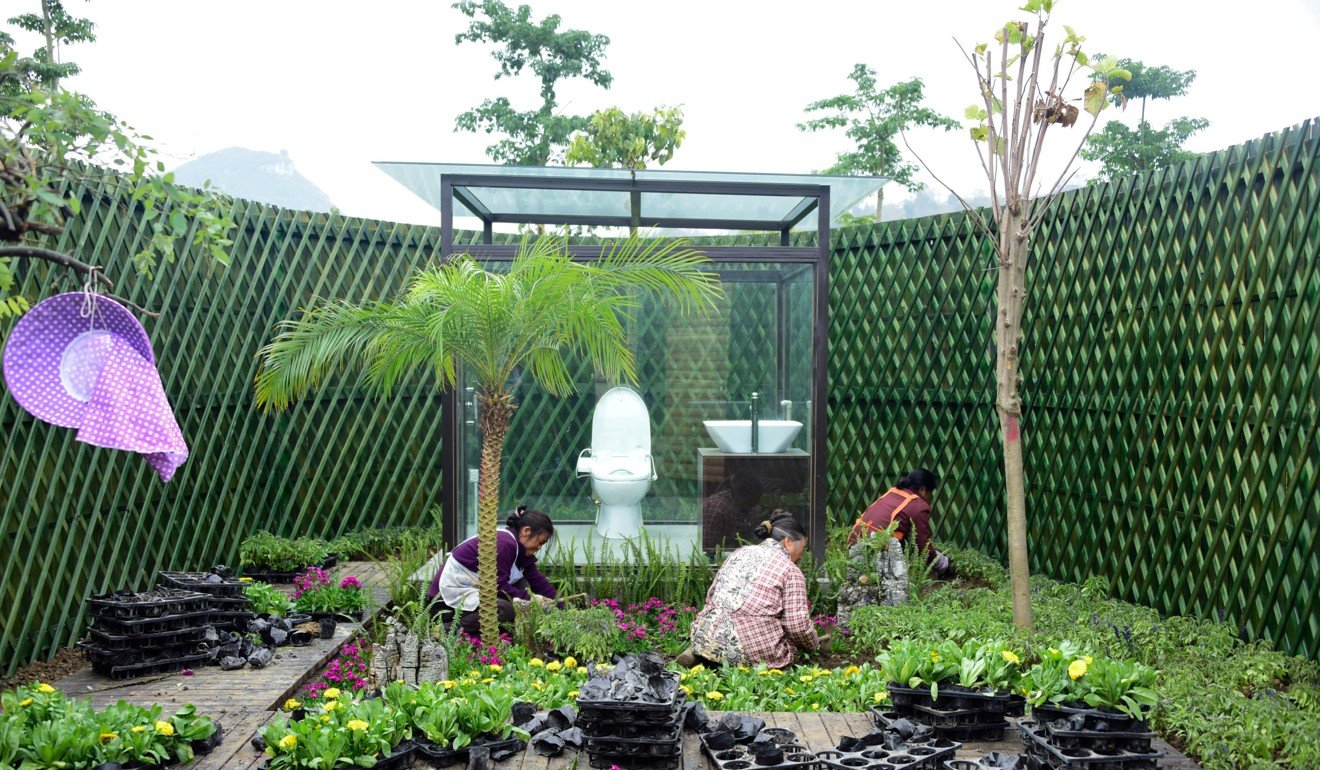
The next-greatest grievance would be the lack of facility maintenance, Mukherjee said.
Although China and India both have had inadequate public toilets for years, China has made great advances in addressing the problem, he said.
“I had issues with toilets at very few places during my travels in China,” he said. “There was never a problem [with toilets] in Shanghai at all.”
India also is in the midst of its own toilet revolution, but public toilets at home still “stink like hell”, he said.
China’s central government has spent about 1 billion yuan (HK$1.25 billion; US$159.2 million) on the issue, according to the Ministry of Culture and Tourism. Local governments have allocated more than 20 billion yuan.
Zhou Lingqiang, a Zhejiang University professor specialising in tourism management, said the money should be used to build more toilets for women than men.
“You can still see many ladies line up in the women’s room while the men’s room is seldom fully occupied,” he said.
A third gender room for adults with elderly parents or young children or people who need to breast feed babies or change clothes is also necessary, he said.
“You can see many people change their clothes in public,” Zhou said. “This is something related to civilisation. With such a room they can do it indoors.”
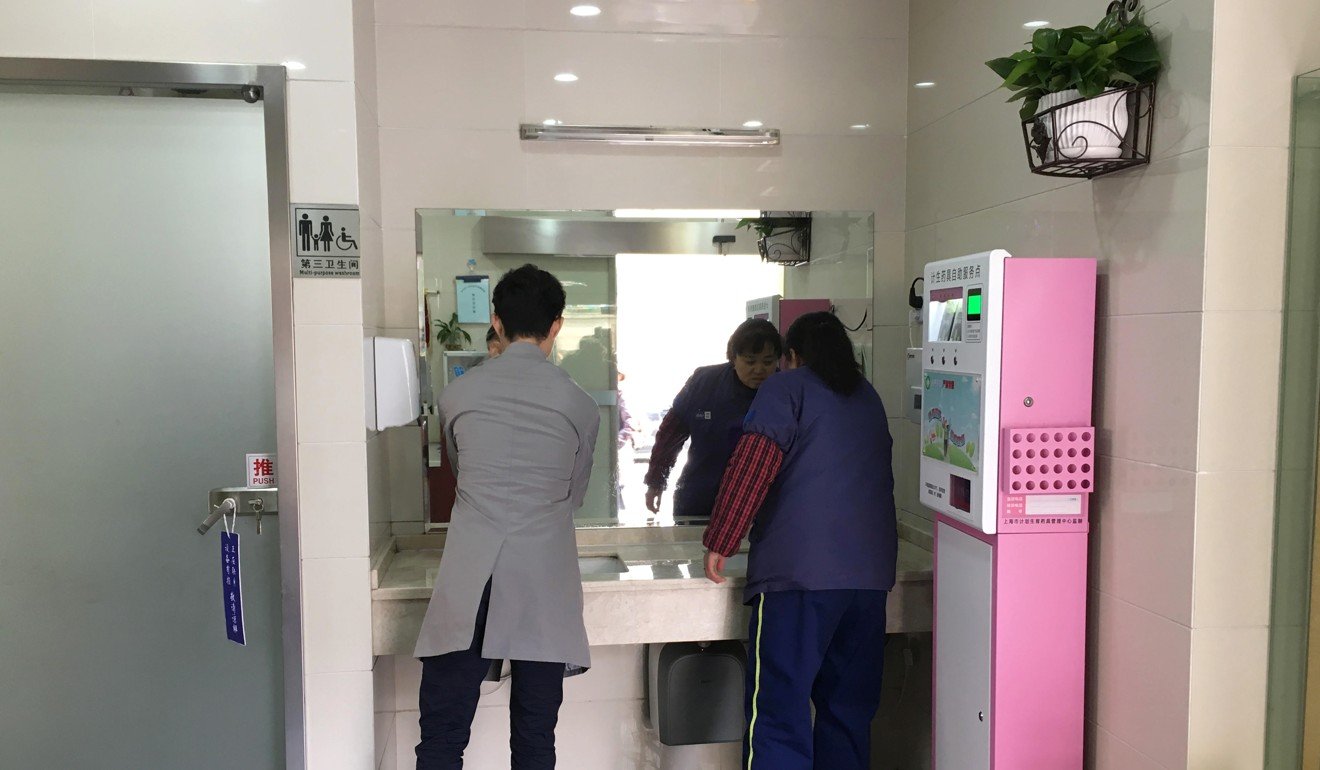
To Shen, the cleaner, the urgent issue is hiring more people to maintain toilets.
In most cases, a public toilet is just one part of a cleaner’s responsibilities, preventing him or her from keeping it sanitary all the time, she said.
Designating one person to keep toilets tidy can generate a virtuous cycle, she said.
Japan converts squat toilets to western-style because foreigners are shunning them as ‘unsanitary’
“A person may litter when he’s in somewhere already very dirty, but when he comes to somewhere very tidy and clean, he will be careful not to ruin the comfortable place,” she said.
“It’s just like if you enter somewhere quiet, you’ll naturally keep your voice down when talking to your companion.
“So having a particular person to maintain the toilet is very important. People’s behaviour can be improved with our work.”







